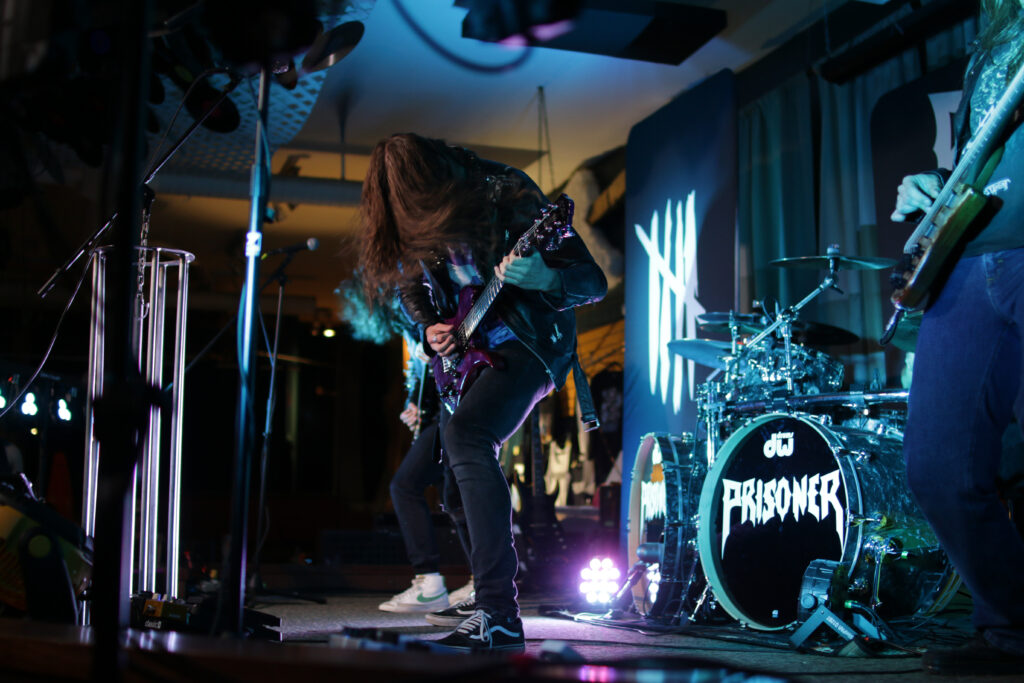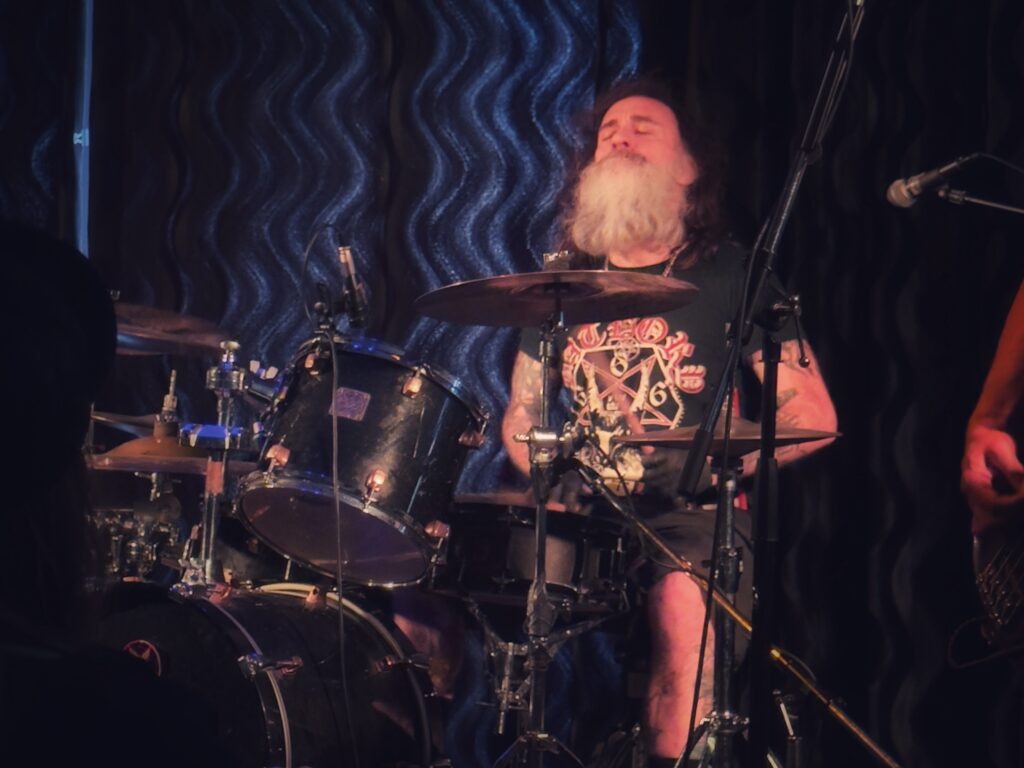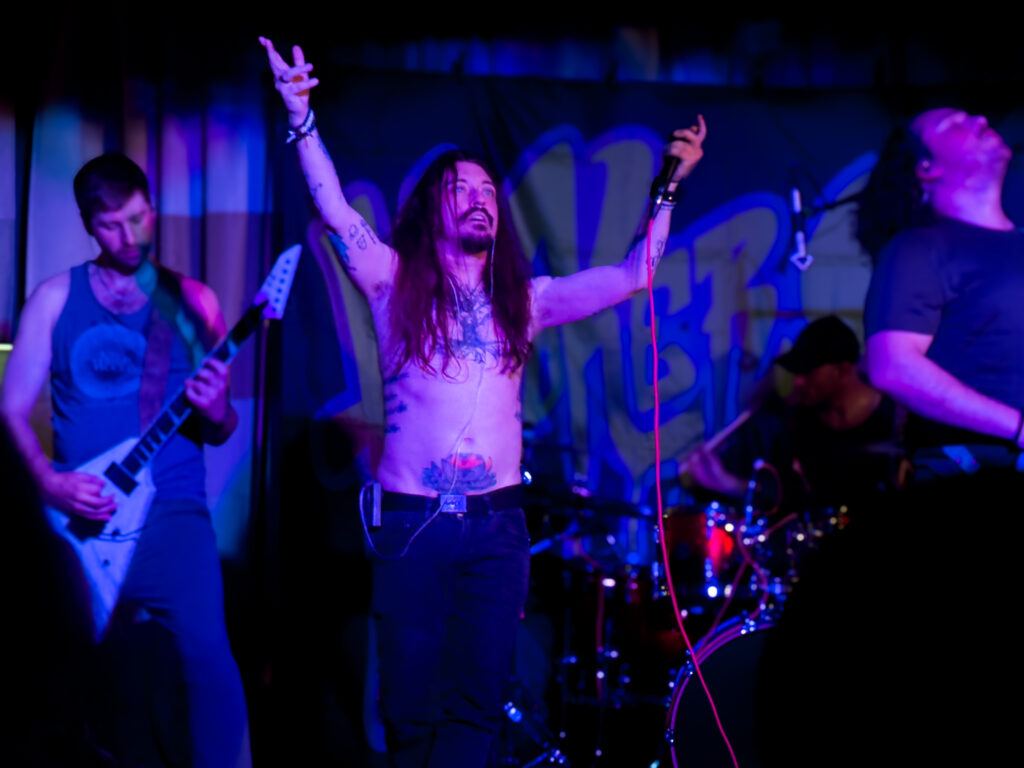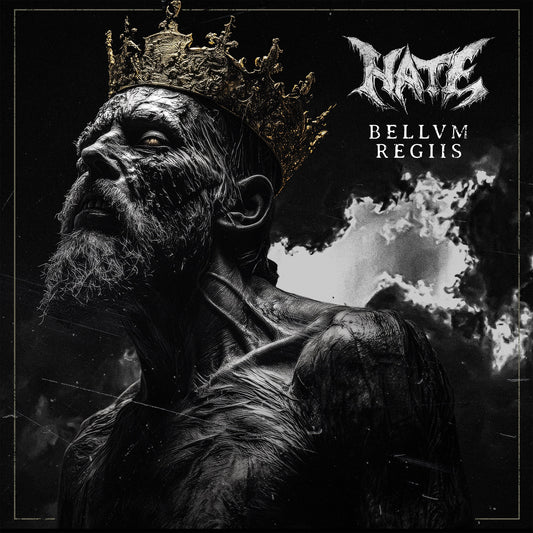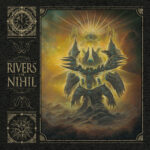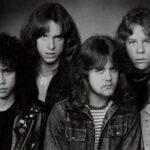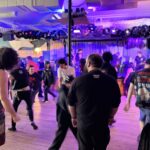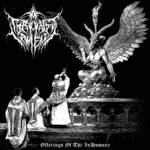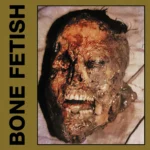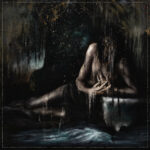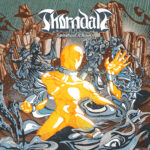Now Reading: Death And Decay Metal Fest: Part 2
-
01
Death And Decay Metal Fest: Part 2
Death And Decay Metal Fest: Part 2

Kelevra: Precision in Motion
When you see Kiesel guitars hit the stage, you know you’re in for some technically proficient prog, and Kelevra absolutely delivered. From the moment they launched into their set, the band brought a level of polish, energy, and presence that suggested decades of experience, even if they’re a relatively new name to some.
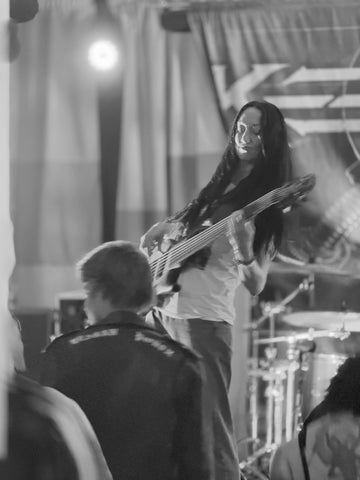
Their sound was clean, tight, and impressively layered. Every note felt deliberate, every rhythm section airtight. The songwriting stood shoulder-to-shoulder with some of the more established giants of the progressive metal world, managing to balance intricacy with catchy structure. This wasn’t noodling for the sake of it, this was prog with purpose.
The crowd responded in kind. From the first riff to the final breakdown, the floor was a whirlwind of headbanging and a full-throttle circle pit. It was easily one of the most engaged sets of the night.
The lighting and stage setup stood out as one of the best visual experiences I’ve seen at this venue. Tasteful and effective without overshadowing the music, it elevated the atmosphere without becoming a gimmick.
That said, prog metal live has always been a mixed bag for me. I respect the hell out of it, but I connect with it more when I can sit and absorb the complexity at my own pace. Still, Kelevra made an impression, I’ll be digging into their studio work soon.
The Judge The Juror: Technical Whiplash
I’ve always vowed to avoid negative reviews, and I’m sticking to that—but I’ve also got to be honest. This set was a tough one. From the first note, it felt like five songs were being played at once. I respect musical experimentation, but there’s a fine line between boundary-pushing and completely unhinged. This set fell into the latter.
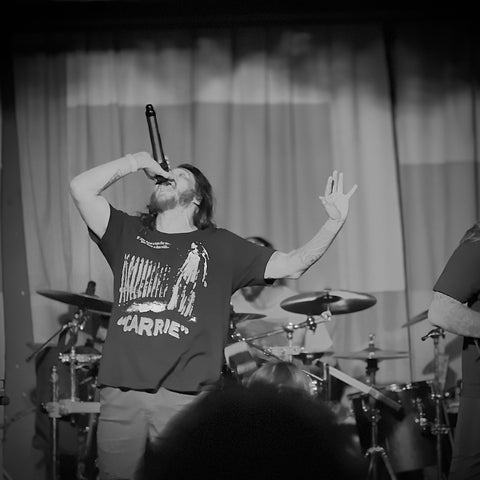
The musicians themselves? No question, they’re skilled. You could tell every one of them knew their craft inside and out. But whatever “psydeathtechprog” is supposed to be, it sounded more like a genre mash-up that didn’t quite gel.
The crowd seemed just as puzzled. While earlier sets had people thrashing and moshing, this one left most folks standing still, maybe trying to decode what they were hearing. The standout, by a mile, was the drummer. The guy was a machine, and it’s worth noting how often he held the whole thing together when the rest of the set started to slip into chaos.
I don’t think this was a matter of a band having a bad night, I think it was just a total stylistic mismatch for me.
Plague Doctor: Controlled Mayhem and Big Personality
Plague Doctor walked the line between chaos and structure with surprising finesse. Their sound had a bit of that progressive lean, but it never tipped into incoherence. The arrangements were thoughtful, the riffs heavy, and the energy? Unmistakable.
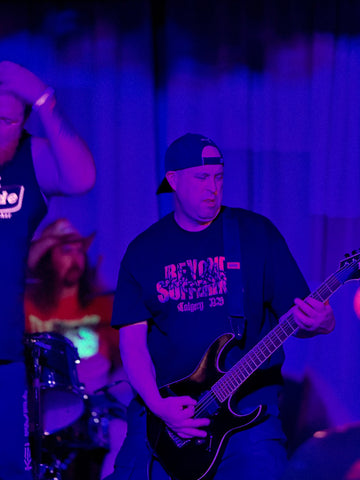
Their frontman brought some much-needed levity and charm to the night. Between songs, his banter kept the mood light, while during the songs he commanded the stage with conviction. That balance of charisma and power pulled the crowd in from the first moment to the last.
Musically, they were tight and confident. Each player held their own, and the compositions, while intricate, never felt bloated or overly cerebral. The performance was engaging without trying too hard to be “different.”
Crowd energy started to fade a bit as the night got later, especially with the minors clearing out, but there was still some pit action and a solid core holding the momentum.
I didn’t walk into this one with strong expectations, but I left genuinely impressed. I’ll be checking them out online to see if their recorded material holds up just as well.
Prohibtitor: Metal, No Frills Required
Prohibtitor hit the stage like a cinder block to the face; no frills, no flashy lights, just gritty, aggressive metal that spoke for itself. It was a refreshing blast of pure old-school intensity in a night filled with technical showcases and progressive flourishes.
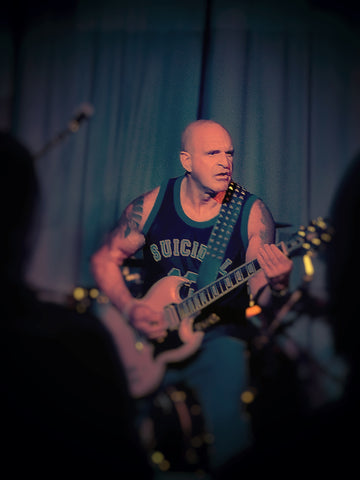
Their sound felt like a glorious collision between Motörhead’s attitude and late-era Slayer’s razor-sharp precision. The riffs were relentless, the drums thundered, and the vocals were barked with conviction. No gimmicks. Just metal.
By this point in the night, the crowd had thinned out, but those who stayed were fully locked in. A few dedicated fans still found the energy to mosh, even if the pit was smaller than earlier in the evening.
What stood out most was their refusal to let anything distract from the music. The stage was barebones, the lighting minimal, but the performance didn’t need any help. The songs did all the talking, and people listened.
Let’s just say I didn’t walk away empty-handed. Shirt, album, two patches, I think that tells you everything you need to know.
Our Last Crusade: Style and Substance
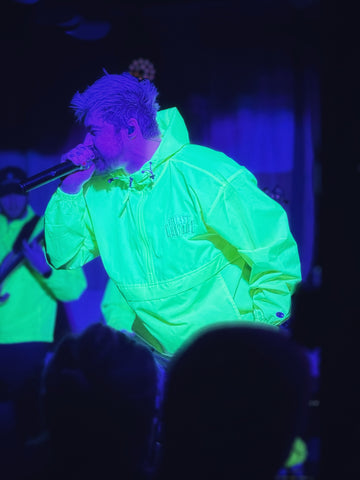
At first glance, I wasn’t sold. Neon yellow windbreakers under blacklights made them look more like a boy band than a metal act, and it honestly pulled me out of the moment before the first note even dropped. But then they started playing, and the tone shifted fast.
They came out swinging with a high-energy, tightly executed set that kept the pace up and the energy high. The lead vocalist was in constant motion, and the bass player even leapt into the pit mid-song without missing a beat. It was a spectacle, but a well-executed one.
Musically, they brought the goods. I’d listened to some of their material before the fest and was glad to hear that same polish and drive translate to their live show. Despite it being the end of a long day, the crowd gave back what they could, cheers, pits, even the tiniest circle pit of the night.
Even if I wasn’t a fan of the visual gimmick, I can’t knock the performance. If that’s part of their identity, so be it. I’ll just focus on the riffs, and there were plenty worth remembering.
Closing Thoughts
The second half of Death and Decay offered a wildly varied lineup that swung between tight technical showcases, chaotic experiments, and raw, old-school aggression. Whether you came for prog precision, no-nonsense thrash, or just a night of full-volume energy, there was something to walk away with, and maybe even a few new bands to dive into once the ringing in your ears fades.


